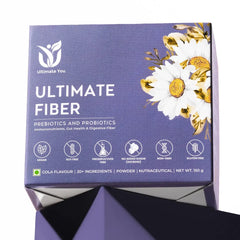Unlock the secrets to better sleep with nature's touch—try grounding, bedtime stretches, or calming superfoods for peaceful, pill-free rest.
Sleep is a cornerstone of overall health and well-being, essential for both the body and mind to function at their best. Quality sleep enhances cognitive abilities, including learning, memory, decision-making, and creativity. Moreover, it supports physical health by reducing the risk of chronic conditions like heart disease, diabetes, and obesity.
Unfortunately, many people struggle to get the rest they need. Studies from the reputed journal NCBI claim that insomnia affects 10%–60% of people, especially older adults, women, and those with medical or mental health conditions. While adopting good sleep practices, such as maintaining a consistent bedtime routine, can make a difference, it's only sometimes enough for everyone.
If you're finding it hard to achieve restorative sleep despite lifestyle adjustments, natural remedies may offer a solution.
Here, we explore 10 science-backed sleep-promoting remedies that can help you drift off into a restful and rejuvenating slumber.
Read on to find out!
Consequences of poor sleep on health
On the flip side, poor sleep or chronic sleep deprivation can lead to a host of health issues. From weakened immunity and higher stress levels to weight gain, heart disease, and diabetes, the effects of inadequate sleep are far-reaching. Mental health also suffers—sleep problems are linked to anxiety, depression, and poor emotional regulation.
Why is sleep essential for health?
Sleep is vital for health as it repairs the body, boosts immunity, enhances brain function, and regulates hormones. It supports memory consolidation, allowing the brain to process and store information effectively.
Top 10 Natural Remedies for Better Sleep
While sleep medications can offer a quick fix, they often come with side effects and can be habit-forming. Fortunately, nature has provided us with various remedies that can promote restful sleep without the need for pills or potions. In this section, we’ll explore 10 natural remedies that can help you improve your sleep quality.
1. Lavender
Struggling with sleep? Give yourself a try with the lavender. Lavender has long been known for its calming properties, and it’s one of the most popular natural remedies for sleep. A study involving 60 individuals with coronary artery disease found that lavender aromatherapy enhanced sleep quality and reduced anxiety after just 15 days of use.
Best For: Busy parents, shift workers, and mindfulness enthusiasts.
How Lavender Promotes Sleep?
Lavender contains compounds that have sedative effects, helping to calm the nervous system. Its essential oil, rich in compounds like linalool and linalyl acetate, helps reduce anxiety and stress. These soothing effects work together to create a peaceful environment that supports improved sleep quality.
How to Use?
Lavender Essential Oil: Diffuse lavender oil in your bedroom before bedtime or apply a few drops to your pillow or wrists.
Lavender Tea: Drink a cup of lavender tea in the evening for a soothing effect.
Lavender Bath: Add a few drops of lavender oil to your bath before bed for a full-body relaxation experience.
2. Melatonin Supplements
If you are finding difficulty sleeping or adjusting to new time zones, melatonin supplements may be the solution you’ve been looking for. First of all, what is melatonin? Well, melatonin is a hormone produced by the brain that helps regulate your sleep-wake cycle. In the evening, melatonin levels rise, signaling to your body that it’s time to sleep.
Many people use melatonin supplements to combat sleep disturbances, especially in cases of jet lag, shift work, or insomnia. A study from NCBI states that a high dose of melatonin increases sleep duration during nighttime and daytime sleep episodes in older adults.
Best For: Corporate professionals and frequent travelers.
How does Melatonin Promote Sleep?
Melatonin supplements help mimic the body’s natural sleep cycle, signaling to your body that it’s time to wind down. This can be particularly helpful for those who have trouble falling asleep or adjusting to a new time zone.
How to Use?
Dosage: A low dose (0.5 to 3 milligrams) about 30 to 60 minutes before bed can be effective for most people.
While melatonin is generally safe for short-term use, it’s always a good idea to talk to your doctor if you’re considering taking melatonin supplements, especially if you have any underlying health conditions.
3. Valerian Root
Looking for a natural remedy to improve your sleep cycle? Start incorporating Valerian roots into your daily routine. Valerian root is a popular herbal remedy known for its calming and sedative effects. It has been used for centuries to treat sleep disorders, anxiety, and stress. Valerian is believed to increase GABA (gamma-aminobutyric acid), a neurotransmitter that helps calm the brain and promote sleep.
A PubMed study involving 39 individuals undergoing hemodialysis found that taking 530 mg of valerian root before bedtime for one month significantly improved sleep quality, as well as reduced anxiety and depression. With this, you can understand the importance of valerian root to enhance sleep quality.
Best For: People with chronic insomnia, travelers recovering from jet lag, and middle-aged individuals.
How does Valerian Root Promote Sleep?
Valerian root contains compounds with sedative effects that soothe the nervous system, reduce anxiety, and promote relaxation, helping you fall asleep faster and enjoy restful, uninterrupted sleep.
How to Use?
Valerian Tea: Drink Valerian root tea 30 minutes to an hour before bed.
Valerian Supplements: Take valerian root capsules or tablets, following the recommended dosage on the label.
4. Chamomile Tea
Chamomile is one of the most well-known herbs for promoting sleep. This gentle, soothing herb is often consumed in the form of tea before bed. Chamomile has mild sedative effects that can calm the mind and promote relaxation.
Best For: Students staying up late, corporate professionals managing stress, and seniors with age-related sleep disturbances.
How does Chamomile Promote Sleep?
Chamomile contains the antioxidant apigenin, which binds to GABA receptors in the brain, helping to calm the nervous system. This promotes relaxation, reduces anxiety, and facilitates the onset of sleep.
How to Use?
Chamomile Tea: Brew a cup of chamomile tea 30 minutes before bed. For extra benefits, combine it with a teaspoon of honey.
Chamomile Essential Oil: Diffuse chamomile oil in your bedroom before sleep for a calming effect.
5. Magnesium
Magnesium is an essential mineral that plays a crucial role in regulating various bodily functions, including sleep. It helps activate the parasympathetic nervous system, which is responsible for relaxation and rest. Magnesium has been shown to improve sleep quality by calming the nervous system and promoting deeper sleep.
Best For: Pregnant women and individuals with nutritional deficiencies.
How Does Magnesium Promote Sleep?
Magnesium helps regulate the production of melatonin, supports muscle relaxation, and alleviates stress, making it easier to fall asleep. Many studies have shown that oral magnesium supplementation can reduce the time it takes for older adults to fall asleep.
How to Use?
Magnesium Supplements: Take magnesium supplements in the evening, about an hour before bed.
Magnesium-Rich Foods: Incorporate magnesium-rich foods like leafy greens, almonds, seeds, and avocados into your diet.
6. Holy Basil
Sleep disturbances, including insomnia and restless nights, affect nearly 30% of adults globally due to rising stress and anxiety levels. While medications provide temporary relief, they often come with side effects, making natural remedies like holy basil (ocimum sanctum) an excellent alternative rooted in Ayurvedic medicine.
Renowned for its adaptogenic properties, holy basil helps the body combat stress by balancing cortisol levels, calming the nervous system, and fostering relaxation. Its active compounds, such as eugenol and ursolic acid, also deliver anti-inflammatory and antioxidant benefits, enhancing overall sleep quality and well-being.
How does Holy Basil promote Sleep?
Holy basil promotes sleep by reducing cortisol levels, calming the nervous system, and lowering anxiety. Its active compounds, eugenol and ursolic acid, provide anti-inflammatory and antioxidant benefits, and support brain function.
Best For: Stressed professionals, sleep-deprived parents, and individuals exploring Ayurveda.
How to Use?
Holy Basil Tea: Brew 1–2 teaspoons of dried holy basil leaves in hot water. Drink 30–60 minutes before bedtime for relaxation.
Capsules or Extracts: Take 300–600 mg of standardized holy basil extract daily, as per the product's instructions or after consulting a healthcare professional.
7. Ashwagandha
Ashwagandha is an adaptogenic herb known for its ability to combat stress and promote relaxation. It helps reduce cortisol levels, the hormone associated with stress, and may improve sleep quality.
Best For: People dealing with chronic stress, gamers with erratic sleep schedules, and individuals avoiding synthetic supplements.
How does Ashwagandha promote Sleep?
Ashwagandha promotes sleep by regulating the HPA axis, which controls the body’s stress response. Its active compounds, withanolides, help lower cortisol levels, reducing stress and anxiety. Not just that, ashwagandha supplementation can improve sleep latency and duration, making it an effective natural remedy for insomnia and stress-related sleep issues.
How to Use?
Ashwagandha Supplements: Take ashwagandha in capsule or powder form, typically about 500-600 milligrams per day.
Ashwagandha Tea: Some teas blend ashwagandha with other relaxing herbs like chamomile and lavender.
8. Tart Cherry Juice
Tart cherry juice is a natural source of melatonin, the hormone that regulates the sleep-wake cycle. Drinking tart cherry juice may help improve sleep duration and quality, particularly for people who suffer from insomnia or disrupted sleep patterns.
Best For: Athletes aiming to improve recovery and young adults with mild sleep issues.
How Tart Cherry Juice Promotes Sleep?
Tart cherry juice promotes sleep by naturally boosting melatonin levels, a hormone essential for regulating the sleep-wake cycle. Rich in tryptophan, an amino acid that aids melatonin production, tart cherries support the body’s natural circadian rhythm.
How to Use?
Drink 8 ounces of tart cherry juice in the evening, about an hour before bed.
9. Warm Milk
Warm milk is an old remedy for sleep, and it actually has some basis in science. Milk contains tryptophan, an amino acid that helps the body produce serotonin, which is then converted into melatonin. Herbal teas like peppermint, lemon balm, and valerian root also have calming effects.
Best For: Teens, pregnant women, and people looking for simple, budget-friendly solutions.
How Does Warm Milk Promote Sleep?
Warm milk promotes sleep due to its tryptophan content, an amino acid that helps produce serotonin and melatonin, hormones crucial for regulating sleep cycles. Additionally, the warmth of the milk has a soothing effect, signaling relaxation to the nervous system. This combination aids in calming the mind and body, making it easier to fall asleep.
How to Use Milk?
Warm Milk: Drink a warm glass of milk 30 minutes before bed.
Herbal Teas: Brew a calming herbal tea like chamomile or lemon balm for a soothing bedtime drink.
10. Passionflower
Passionflower, also known as Passiflora incarnata, has long been used as a natural remedy for improving sleep. It is native to North America and is now cultivated globally, including in Europe, Asia, and Africa. Known for its calming properties, passionflower is a popular choice for individuals seeking natural solutions to insomnia and other sleep disturbances.
Best For: Students coping with exam stress and creative professionals battling anxiety.
How Does Passionflower Promote Sleep?
Passionflower works by increasing levels of gamma-aminobutyric acid (GABA) in the brain, a neurotransmitter that helps reduce brain activity, promoting relaxation and better sleep. Research from NIH suggests that passionflower tea or extract may enhance total sleep time, and efficiency, and reduce wake time after sleep onset.
How to Use?
Passionflower Tea: Brew 1 teaspoon of dried passionflower in a cup of boiling water. Let it steep for 10 minutes, and drink it 1 hour before bedtime.
Passionflower Extract: Take 250–500 mg of passionflower extract daily, as per product instructions or after consulting a healthcare professional.
Final Thoughts
Wrapping up, incorporating natural remedies like lavender, magnesium, or tart cherry juice into your routine can significantly improve sleep quality without the risks associated with medications. These science-backed solutions not only promote relaxation but also address underlying issues like stress and anxiety.
If you want to get started, experiment with these remedies to find what works best for you and pair them with healthy sleep practices for long-term benefits. Further, if you have any concerns, reach out to us using the comments below. We would like to clarify them as soon as possible.
Disclaimer
The information provided is for educational purposes only and is not intended to be a substitute for medical treatment. If you're pregnant, nursing, taking medication, or have a medical condition, it's better to consult a healthcare professional. Ultimate You does not provide any guarantee regarding the accuracy, adequacy, completeness, legality, reliability, or usefulness of the information and disclaims any liability arising from it.

Ram Charan
Content Lead
With over 7 years of experience, he crafts engaging stories and compelling narratives. He believes crisp and engaging content adds value to customers and drives immense sales to businesses. When he's not working, you'll find him hanging out with friends, binge-watching movies, and exploring the world of organic foods.
Tags
Frequently Asked Questions
Can natural remedies replace sleep medications?
Natural remedies are an excellent alternative for mild sleep issues but may not be sufficient for severe conditions. Consult a doctor if sleep problems persist.
Which natural remedy is best for stress-induced insomnia?
Ashwagandha, holy basil, and magnesium are effective for stress-induced sleep issues due to their calming and cortisol-balancing properties.
Are there any side effects of natural sleep remedies?
Some remedies, like valerian root or melatonin supplements, may cause mild side effects like drowsiness or headaches in some individuals.
Can natural remedies help with jet lag?
Yes, melatonin supplements and tart cherry juice are effective for regulating sleep-wake cycles disrupted by jet lag.
How can I enhance the effectiveness of natural sleep remedies?
Pair remedies with good sleep hygiene practices, such as maintaining a consistent bedtime, avoiding screens before sleep, and creating a calming bedtime routine.
- Choosing a selection results in a full page refresh.
- Opens in a new window.
15%

on your next order
By submitting your email address, you agree to receive marketing emails from Ultimate You at the email address provided. We may use information collected about you on our site to suggest the products and offers. you can withdraw your consent at any time by following the unsubscribe instructions in any email we send to you. view Terms and Privacy. Contact Ultimate Customer Care at #204-8430 Saint Monica Building, near Char Miner, Hyderabad, India, 203455.






